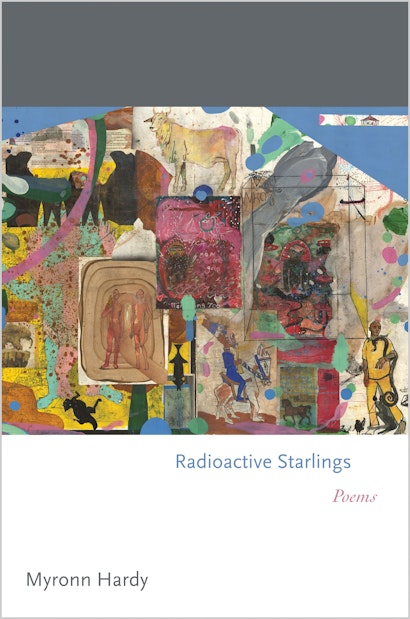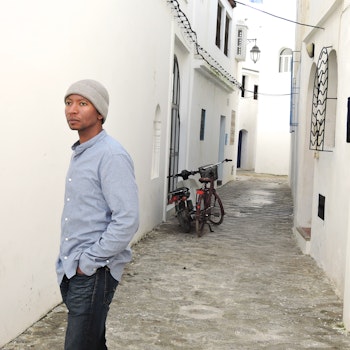In Radioactive Starlings, award-winning poet Myronn Hardy explores the divergences between the natural world and technology, asking what progress means when it destroys the places that sustain us. Primarily set in North Africa and the Middle East, but making frequent reference to the poet’s native United States, these poems reflect on loss, beauty, and dissent, as well as memory and the contemporary world’s relationship to the collective past.
Hardy imagines the Portuguese writer Fernando Pessoa as various starlings dwelling in New York City, Lisbon, Tunis, and Johannesburg, flying above these cities, resting in ficus and sycamores and on church steeples and minarets. Inhabiting the invented voices of Gwendolyn Brooks, Bob Kaufman, and Henry Ossawa Tanner, the poems make references to Miles Davis, Mahmoud Darwish, Tamir Rice, Ahmed Mohamed, and Albert Camus, and use forms such as ghazal, villanelle, pantoum, and sonnet, in addition to free lyricism. Through all these voices and forms, the questing starlings persist, moving and observing—and being observed by we who are planted on a crumbling ground.
A meditation on the complexities of transformation, cultures, and politics, Radioactive Starlings is an important collection from a highly accomplished young poet.
Myronn Hardy is the author of four previous books of poems: Approaching the Center, winner of the PEN/Oakland Josephine Miles Prize; The Headless Saints, winner of the Hurston/Wright Legacy Award; Catastrophic Bliss, winner of the Griot-Stadler Award for Poetry; and, most recently, Kingdom. He divides his time between Morocco and New York City.
"[Radioactive Starlings] is an illuminating, if occasionally difficult, collection."—Publishers Weekly
"What Myronn Hardy attempts in Radioactive Starlings, few dare to dream of doing, and rightly so, for rare is the poet that is capable of the breadth, depth, and density that characterize his exploration. I know this, because, reading it, I am overrun."—Ciahnan Darrell, Marginalia
"Myronn Hardy is a citizen of worlds, including the North Africa where he lives and the America where he was born. Recalling Damascus, he sees Dylann Roof emerging with ‘the gracelessness of the unburied,' and on Ibn Rochd Avenue in Rabat, an image of a father tying his son's shoes evokes Trayvon Martin's untied laces. Filled with ecstatic moments, the poems in Radioactive Starlings are supreme examples of lyric restraint as well as lush, colorful precision. This compelling collection makes a powerful case for claiming Hardy as one of our finest lyric poets."—Khaled Mattawa, author of Tocqueville: Poems
"Exigent, insistently international in their references, Myronn Hardy's poems combine painterly sensuality with a restless interrogation of history and self. Bodies, in Hardy's poems, stand where other bodies stood centuries before. Absences grow visible; someone is always looking at someone else looking away. Such themes are enacted in Hardy's singular prosody. The starlings of the book's title are what unite all the poems and places. We sense them, specks of blackness, flying over us, blowing through us like neutrinos, bringing us together, living and dead, into the fullness of our humanity."—Forrest Gander, author of Core Samples from the World


